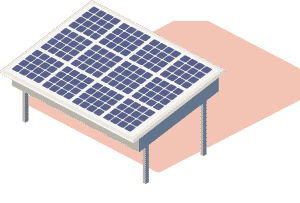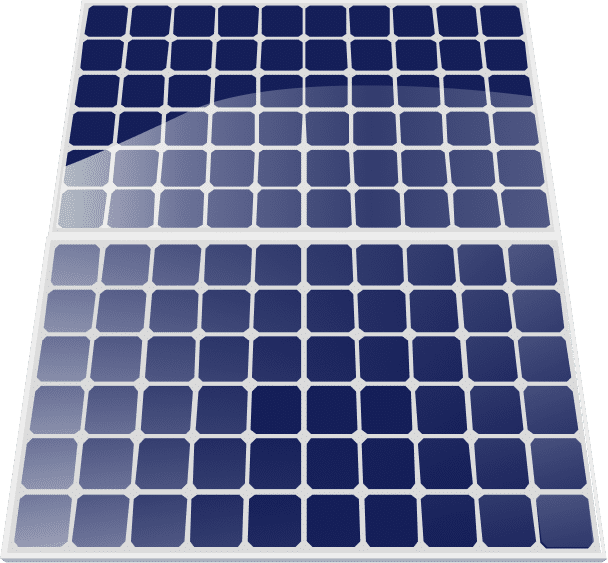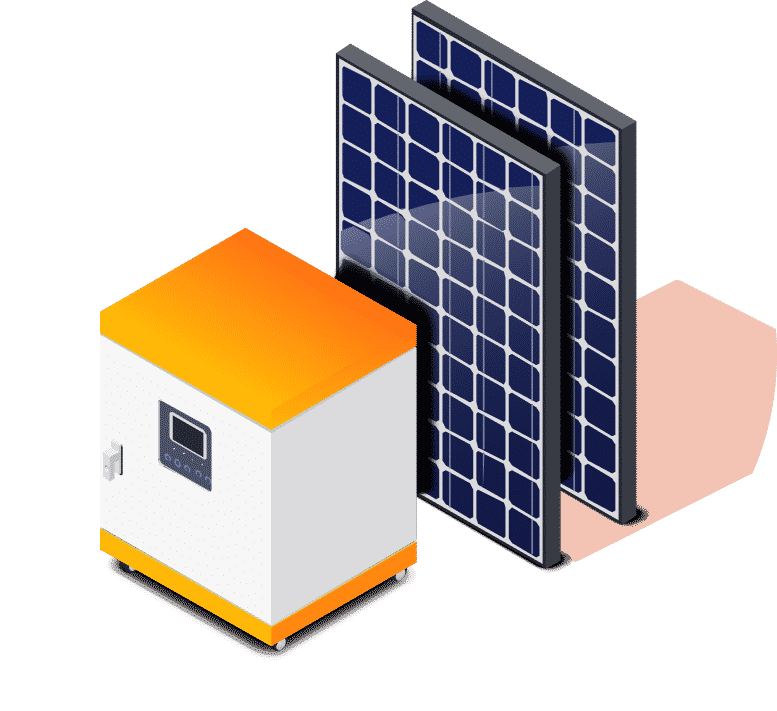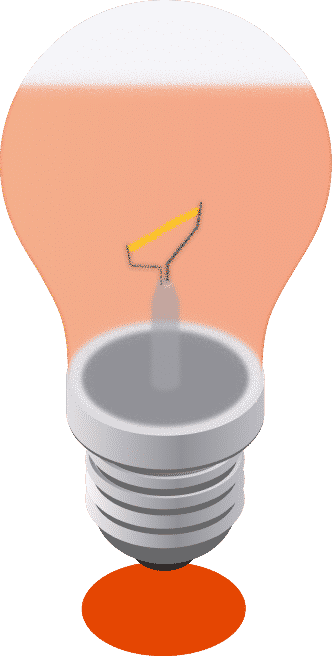Solar Financing

Solar Financing
Solar panels are a great option for saving money. They can also reduce your carbon footprint, and increase the value of your home. If you’ve made the decision the solar panel is right for your needs, you’ll have to figure out how to pay for them. We’ll guide you on how to pay in cash, get a lease or apply for personal loans.
What is a Solar panel loan?
Solar panels harness sun’s energy to generate electricity. Solar panels are put in place in homes for two primary motives: to lower the cost of electricity and aid in reducing greenhouse gases.
Solar panel financing allows homeowners to get the money they need to buy a solar panel system. Solar panel loans allow owners to pay for the solar panel installation over several years, rather than having to pay out of their own pockets.
Savings
Solar panels can save an average American family over \$1,400 annually in electric bills. While homeowners can save substantial cash, there’s an upfront expense of a significant amount. This is where a loan from the Shneyder Solar can help. The{ average|| typical} cost of solar installation for a house of an estimated size of U.S. is between $11,144 up to $14,696 according the Shneyder Solar. It is estimated that the total price of solar power can be reduced with tax incentive programs, which we’ll discuss in the future.
Personal credit
You can look up Shneyder Solar, the best personal loans and rates to finance solar panels today. You can also find information about credit requirements, loans, loan terms, and other details in the information provided by Shneyder Solar, our favorite personal loan lenders.
A personal loan is a good alternative if you’re seeking a loan for solar. Personal loans are available in many sizes and provide attractive rates and terms for borrowers with good credit.
There are two kinds of personal loans: secured and unsecured personal loans. Unsecured personal loans don’t require collateral. The secured loans will require collateral. Secured loans typically offer lower rates of interest and monthly payments because lenders are well aware that you may not be able to make your monthly payments and they may sell your collateral in order to recover their losses.
How do you pay for going solar?
Your income, credit score, where you live and how long the solar array will be worthwhile will determine the best financing option for you. For reliable and expert advice regarding financing solar panels talk to an expert. Each method has pros and cons. Each has an impact on how much you save as well as the time it takes for solar panels to pay off.
While solar leases might be popular in past and may have worked for the neighbor you live next to, now you could discover more suitable financing options. There are many options available within Shneyder Solar for zero down solar financing.
There are two kinds of financing options for residential solar either Direct Ownership or Third Party Ownership.


What credit score do I need to get a personal loan for solar panels?
Shneyder Solar will determine the minimum credit score that is required in personal credit. In order to be approved, your credit score must be at least 580. Credit score-conscious borrowers are more likely to be approved for the most favorable rates and terms of repayment.
Apply for personal loans for people with bad credit in the event that you do not have the credit score you require however you’d like financing solar panel. Your credit score will decrease the chances of you being denied the loan. You’ll be able make{ the|| your} monthly installments on the loan that you choose without stressing regarding your credit rating.
If you’re a credit-worthy person, personal loans will be offered at very affordable interest rates. A low interest rate will allow you to save many hundreds over your loan term. Even a small difference of 1% can result in significant savings. To make the most of your savings, search for low-interest personal loans which are readily available.
Other loans for solar panel financing options
Solar panels can be financed with personal loans, but that’s not all. These are just some of the many options available in financing solar panels.
Loan from the government
Power Saver is an Federal Housing Administration program that aids homeowners to save energy through loans that cover a variety of technology. Two options are available under this program, which offer adequate loans that can fully finance financing for solar panels such as the Power Saver Energy Rehab 203(k) loan or Power Saver Second Mortgage. To be eligible for this type, borrowers will need to satisfy certain requirements, such as an acceptable credit score (660) and an amount of debt per income of 45 percent.
- The Power Saver Second Mortgage allows homeowners up to \$25,000 in second mortgages to increase energy efficiency through the installation of solar panels. The homeowner must not be a homeowner with any second mortgage or home equity loan or second lien in order to be eligible for this program. The loan can be repaid for up to 20 years.
- For those who are purchasing or refinancing their house and would like to include the cost of any improvements to the loan The 203(k) loan is accessible. They can repay the debt over the entire term of their mortgage.
These loans are well-known because they have the lowest interest rates than personal loans but they also have a longer repayment period. FHA is strict about what is allowed to be spent, which means it is likely that you’ll stay within your budget and only buy the things you require.
FHA finance restrictions apply. This means that you have to keep your spending below the limit. You may have to replace your solar panels when the solar panel is financed over 20 years. Shneyder Solar is familiar with these types of programs. FHA rules must also be followed. This may make loan processing more difficult.

Home equity loan
Home equity loans let you to take out loans using your own equity in order to finance renewable energy. A bank typically lends up to 85 percent of your equity for projects such as this. If your home is valued at $300,000. but you owe only $200,000, then you have an equity of $100,000. The bank will approve you for up to $85,000. A home equity loan to finance solar panel installation can allow you to obtain a competitive rate of interest because your home can be being used as collateral. The bank can also repossess your property if you default on your payments.
Solar leasing
Technically speaking, this program doesn’t require you to buy the solar panel you want. The program allows you to contract to lease (or rent) solar panels. Solar panel companies offer leasing programs that require no down payment. You will immediately reap the benefits of savings in energy as Shneyder Solar installs your panels. You will not be eligible for tax credits or the rights to own the panels. Also, you’ll not be eligible for tax benefits and solar incentives.
Taking Out a Solar Loan
You can take out an installment loan through Shneyder Solar if you aren’t able to pay the full amount to purchase your system. The solar financing company provides flexible loan repayment options to customers who need to put down cash upfront and pay off the loan quickly, have poor credit or are looking to save money immediately. Solar loans typically require no down payment, which makes them attractive and practical.
Shneyder Solar will charge you an additional cost to finance your system, just like a home mortgage or auto loan service. The price of financing your system can vary according to your credit score as well as the time frame of your loan.
Interest rates are another cost element to be considered when considering solar loans. Annual percentage rates (APR) is the cost of extra monthly payments. It includes both the interest rate and other fees. Your monthly payment will increase due to the fixed APR. Be sure to research all options before choosing the most suitable APR to finance solar-powered projects.
With the exception of PACE financing, obtaining loans will need a soft credit screening. The minimum score for credit is 640. is required to be eligible for solar loans.
In addition to a good credit score, you’ll require the following documents in order to be in a position to get the loan offered by an solar company:
- To determine the amount that you will be able to borrow you will have to develop your plan.
- A loan application
- Affirmation from your loan provider
Shneyder Solar allows you to apply for a loan and finance your project after you’ve received and selected an offer from a solar contractor.
Types of Solar Panel Loans
Re-amortizing a term loan
We recommend that you utilize the Tax Credit to re-amortize your loan after you have received it. Remortization will lower your monthly payments over the remainder of the loan term.
Same as cash option
This will allow you to make your monthly payments on 70% of the loan principal for the first 12-18 month. This will allow you to pay 30% of the loan principal with the cash you’ve saved by taking advantage of tax credits during the next grace period which is usually 12 months. The homeowner can get a 30% discount on their first monthly payment with Same as Cash.
Combo Loans
A Combo Loan consists of two parts.
The Bridge Loan. The 30% tax credit to your income tax for the year, since you purchased your solar system with loans. A combo loan will give you between 12 and 18 months to pay back 30 percent of the principal. Tax credits from the federal and state levels credits are able to be utilized to pay off the initial portion of the loan. Also, you’ll be able to enjoy lower interest rates over the duration of the loan’s term. You will need to pay the initial 30% of the loan under the Bridge Loan terms and the tax credits. You could have to pay out of pockets or at high interest rates if your income taxes exceed your tax credit.
A Net Solar Term Loan. The remaining term of your loan allows you to pay back 70 percent on the amount of principal.
Direct Ownership: Buying Solar Panels
Going solar using cash
Cash is the most effective! Cash payments are the best way to save money and get the highest return for your money. It is also the sole way to receive solar power without interest.
From the moment your solar system is switched on, it’ll generate free energy and save you money. Depending on the size and type of solar panels you choose the payback period for solar panels on rooftops across the United States can take between 4-8 years.
It is very easy to purchase solar power plants with cash, since there aren’t any third-party solar financiers.
Shneyder Solar offers 4 advance payments for cash purchase:
- “Down Deposit or Payment” generally, $1,000 is due at the time that your site visit is complete
- “Due on Approval of Site Designs” $2,000 due once you have received your final site design’ from the installer
- “Due upon Delivery of Materials” 60% of the amount is due upon the day equipment is delivered or on the first day after installation
- “Due upon Final Building Inspection” The balance is due once your project has passed city building inspection.
The benefits of owning solar
The solar system you choose to install will provide you with more savings over the life of your existence.
Although your savings over the course of time may differ based on the amount of energy you consume and your zip code that is why owning your solar panel is the best option for those looking to go solar. The option of renting from a third party system will yield higher savings if you own your system.
Solar ownership directly increases your home's value
As per the U.S. Department of Energy’s Lawrence Berkeley Labs, home-buyers will be charged \$4/Watt more in order to get solar panel. Your home’s value depends on the panels, which will offer free electricity for a number of years. You may still be able to sell your home even if you’re in the process of paying off the loan. You can transfer the loan to the tenant or pay back the remainder of the loan by selling the property.
The Solar Investment Tax Credit is available to you
You must satisfy the following requirements to be eligible for the tax credit
- You can buy your system by using a credit card or cash
- You can pay tax on income equal to or greater than 30% of the system cost
It’s as simple as that! This is a step by step guide to help you apply for the tax credit under the federal Solar Investment Tax Credit. The tax credit equals 30 percent of the cost of your solar system. The entire credit is deducted from your own income taxes in the year your system starts production. What happens if you have lower income taxes than your tax credit? The Solar Investment Tax Credit will be carried over to the following year, if needed, up to a maximum of five years.
Solar Ownership Cons
One of the drawbacks of the ownership of your system you are responsible for maintaining the panel
Maintenance is easy, thanks to the ease that solar panels offer. A solar system has no moving parts, and therefore requires minimal or any maintenance. Although your solar system may need to be cleaned when dirt or dust accumulates the panels that are tilted can be easily cleaned with regular rain. It’s your responsibility to make repairs if your panels are damaged. Shneyder Solar offers a robust warranty that protects your against all unpredictable harms.
You should keep track of your energy consumption if you own the system. Every month, look at your electricity bill and solar power production. If you don’t monitor your system often you may not be aware of it for months.
What to look for when financing solar panels
You may feel compelled to select a specific type of loan to finance solar panels. Allow Shneyder Solar help you to make the right choice when it comes to purchasing. A difference in interest of only 1 percent could make a difference in saving you many thousands over the life of the solar loan.
Here are some points to think about when financing solar.
- Lower interest rate. Solar panels{ will|| can} pay off faster if make less payments on your loan.
- The terms of repayment are appealing. Personal loan terms that are attractive. The monthly payment could be excessive if the duration of the repayment is too long. You will pay more interest if the period will be too lengthy. The shortest possible loan term is the one you’re capable of paying for.
- Perks. Solar power financing perks that are the best include a lower rate of interest for autopay, access to loan details, and protection from unemployment.
Is solar panel financing right for me?
After you sign the solar power contract financing through Shneyder Solar, you will be eligible to receive a federal tax credit. You may also be qualified for tax incentives from the local or state government, depending on the location you live in.
The Federal Solar Tax Credit, commonly known as the investment credit (ITC) offers 26% deductibility from your federal taxes for the cost of your solar system. The incentive will be reduced to 22% by 2023 and it expires after 2024 on residential systems. If, however, you have a $12,000 system installed this year, the tax credit from the federal government would be 3120 ($12,000 divided by 0.26 is 3,120).
It is a major decision to fund an investment. Consider your monthly budget, and how much you will reduce your total expenses to determine if a solar loan is the best option for you. You can utilize pencils and paper to calculate the{ actual|| exact} price of the loan, after taking into account tax credits and lower utility costs. There aren’t many home improvements which can benefit the environment decrease our dependence of fossil fuels, and improve the property’s value. It is worth looking into solar power financing.
GET YOUR FREE PROPOSAL IN A FEW EASY STEPS
Fill out the form and our sales consultant will contact you! Once you’ve had your initial consultation, you’ll begin your solar journey.
